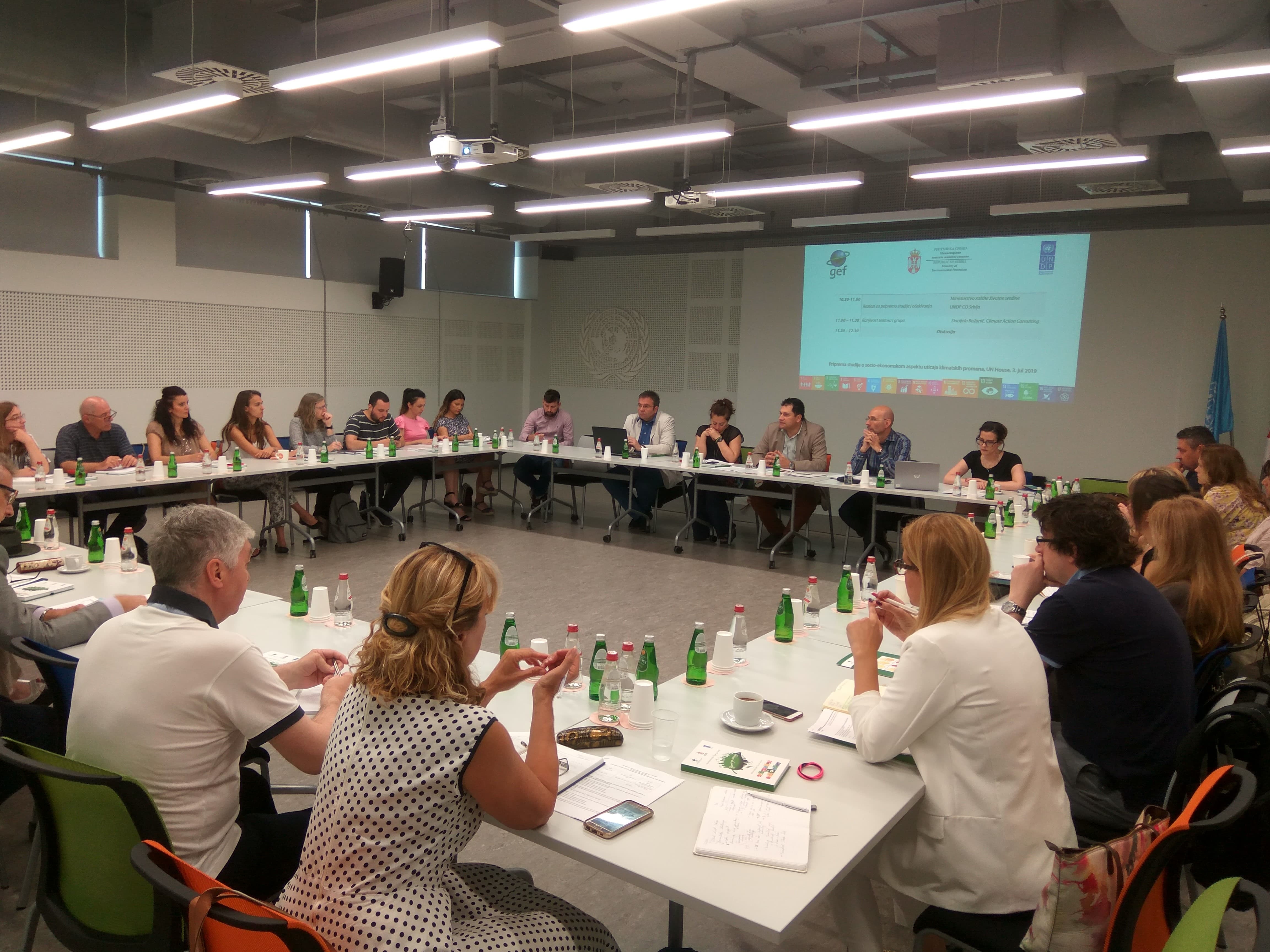The Ministry of Environmental Protection, in cooperation with the UNDP in the framework of the project “Establishing transparency framework under the Paris Agreement”, organized a consultative meeting on 3 July 2019 with the aim of supporting the Study on the socio-economic impacts of climate change in the Republic Serbia. The meeting was attended by representatives of relevant institutions, academic community and the non-governmental sector. First of this kind in Serbia, the Study aims to determine the visible, expected consequences of climate change on society and economic development, in the medium and long term; to provide an overview of the situation and to propose appropriate practices and policies in order to reduce the negative effects of climate change on the economy and society and positive turn into profit; as well as to identify the impact of climate change on the most vulnerable key groups of the population and sectors. The study will include sectors that have already been identified as the most vulnerable to the negative impacts of climate change, such as agriculture, public health, forestry and water management, as part of the National Reports of the Republic of Serbia under the UN Framework Convention on Climate Change but will also include energy sector and infrastructure that are particularly sensitive to the consequences of extreme climate events. As particularly vulnerable groups, older people, women, children, people in danger of health, and farmers and open-air workers have been identified.
In the initial phase of the Study, a questionnaire was made, which will be distributed to representatives of relevant sectors in order to gather information and suggestions of importance for the preparation of the Study.
It is envisaged that the Study will be finished until October, after which the public presentation of the results will be organized.
Representatives of all sectors relevant for the preparation of the Study attended the meeting, and during the discussion they presented their views and expectations from the Study. The meeting concluded that the Study should be as comprehensive as possible and include as many socio-economic aspects as possible of the impact of climate change on the relevant sectors, as well as to present the vulnerability of different target groups.






